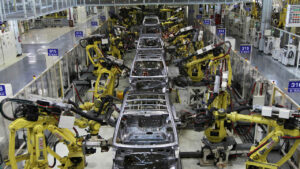
Korean chamber names curbs on land ownership as key investor concern
By Justine Irish D. Tabile, Reporter
THE lifting of foreign ownership restrictions on land will help attract more South Korean investors to the Philippines, the Korean Chamber of Commerce Philippines (KCCP) said.
On the sidelines of the 13th Arangkada Philippines Forum, KCCP President Joseph Um told BusinessWorld that South Korean companies are constantly comparing the opportunities within the region, especially in the context of conditions in Vietnam, Thailand, and other Asian countries.
“I think foreign ownership of land is something the Philippines still has to open up,” he added.
He said that the Philippines might have already reaped the benefits from even slightly more liberal rules on land.
“Even just partially with some restrictions, which I think the government can study in collaboration with the Congress, I think that will benefit a lot,” he said.
“From what I know, less than 10% (of potential Korean manufacturing investment) is coming in. The others go to Vietnam and other countries,” he added.
He also cited the archipelagic nature of the Philippines, which is less advantageous logistically.
Article 12 of the Constitution limits foreign ownership of land and businesses to 40%, with the remaining 60% set aside exclusively to Filipino citizens or corporations. Company ownership curbs have since been loosened in industries like renewable energy, where 100% investment has been allowed.
The House of Representatives approved a proposal to lift foreign ownership limits in the Constitution. It only covers the liberalization of ownership in public utilities, education and advertising.
Republic Act No. 7652, or the Investors’ Lease Act, allows foreign investors to lease private land as long as the aggregate period of the lease contract does not exceed 50 years, renewable once for a period of no longer than 25 years.
Three bills currently pending at the House of Representatives Trade and Industry Committee seek to extend this term to 99 years, while a similar bill was filed by Senate President Francis G. Escudero on July 2.
The amendments to the Investors’ Lease Act is among the priority bills the Legislative-Executive Development Advisory Council identified for passage within the 19th Congress.
SOUTH KOREA FTA
Asked for updates to the South Korea-Philippines free trade agreement (FTA), Mr. Um said that the ratification is going slow on the Korean side.
“It is just a matter of time, and I think it is a little slow on the side of Korea, but I heard during South Korean President Suk Yeol Yoon’s visit early this month that they are pushing for within the year.
However, he noted that the ratification of FTA is beyond the president’s control but is in the hands of the National Assembly.
“(Ratification) is not an issue; it is just they simply have many matters to settle. What I want to emphasize is that it is not that they do not want to approve this FTA but that the National Assembly itself has many agendas to settle, and sometimes the ruling party and opposition have many issues to fight on,” he said.
“But this will definitely have (trade benefits) because although it does not cover 100% (of the products we trade), major items are covered, so both countries will benefit, especially the consumer side because that is where they will enjoy reduced tariffs,” he added.



